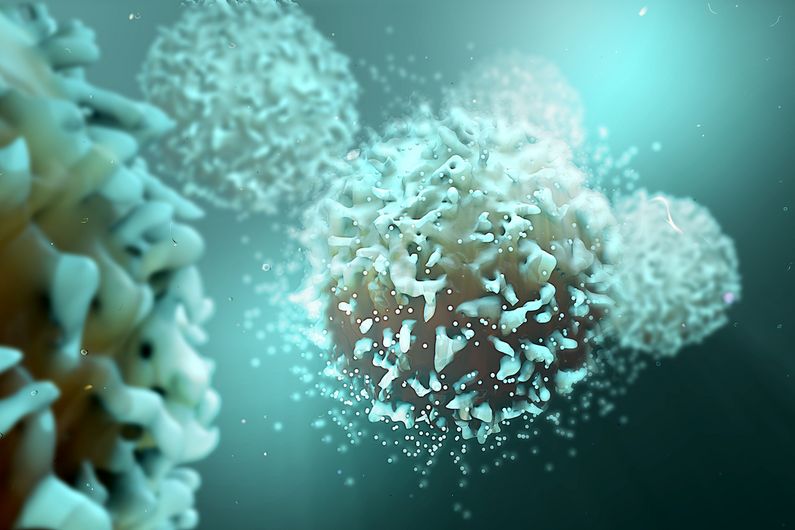Improving the efficacy of cellular therapies
- Salle de presse
09/17/2020
- UdeMNouvelles
A new study published in "Nature Communications" deepens the understanding of the development of T cell, an important component of the immune system.
Researchers have gained a better understanding of the complexity of the environment in which T cells thrive and, by extension, the tolerance mechanisms of these cells which are an obstacle to cellular immunity.
Published in Nature Communications, the new study was directed by Dr. Marie-Ève Lebel, a post-doctoral intern at the Maisonneuve-Rosemont Hospital Research Centre, which is part of the Centre intégré universitaire de santé et de services sociaux de l’Est-de-l’Île-de-Montréal (CIUSSS-EMTL).
Ms. Lebel works in the laboratory of Dr. Heather Melichar, a researcher at CR-HMR and assistant professor in the Department of Microbiology, Infectiology and Immunology at Université de Montreal.
Carried out in collaboration with researchers at the Lady Davis Institute of McGill University and at Harvard University, Lebel’s work promises to improve the efficacy of cell therapy.
T cells are an important component of the immune system, which allows the body to be protected against infections, as well as contributing to eliminating cancer cells that are recognized as being foreign to the organism.
The use of the immune system to destroy tumour cells, called immunotherapy, has not only allowed for an increase in the survival rate of cancer patients, but has also meant a cure for patients with advanced stage cancer and/or those patients for whom traditional therapies have failed.
Nevertheless, several obstacles can hinder the efficacy of immunotherapy due to T cell tolerance mechanisms that produce a state of immune non-response to a specific antigen. Lebel has focused on understanding these tolerance mechanisms in order to counteract the inability of certain T cells to attack diseased cells.
She and her colleagues have been able to identify certain factors that influence the development of T cells by better understanding the environment in which they develop and the interaction between cells.
Ultimately, these elements have a major impact on the body´s capacity to control an infectious agent, or even the growth of tumour cells.
“This discovery is a powerful scientific breakthrough, as these results will help us identify new targets and approaches to increase the anti-cancer activity of T cells in order to improve the survival of our patients,” said Dr. Denis Claude Roy, director of the Institut universitaire en hémato-oncologie et en thérapie cellulaire (IUHOTC) and the Centre d’excellence en thérapie cellulaire (CETC) Maisonneuve-Rosemont Hospital, in Montreal.
About the Centre intégré universitaire de santé et de services sociaux de l’Est-de-l’Île-de-Montréal
The Centre intégré universitaire de santé et de services sociaux de l’Est-de-l’Île-de-Montréal (CIUSSS-EMTL) encompasses 26 facilities and serves a population of more than 500,000 Montrealers. Affiliated with Université de Montréal, it offers a complete range of frontline healthcare and social services, housing services, and general, specialized, and superspecialized hospital services and mental health care.
About the CIUSSS de l'Est-de l'Île-de-Montréal
The Centre intégré universitaire de santé et de services sociaux de l'Est-de-l'Île-de-Montréal (CIUSSS-EMTL) encompasses 26 facilities and serves a population of more than 500,000 Montrealers. Affiliated with the Université de Montréal, it offers a complete range of frontline healthcare and social services, housing services, and general, specialized, and superspecialized hospital services and mental health care. Thanks to its two research centres and its four pillars of excellence in mental health, immuno-hematology, eye healthcare and nephrology, the CIUSSS-EMTL is a leader in health innovation in Canada. Its teams´ innovative ideas contribute to its national and international reach.
Media contact
-
Clara Meagher
CIUSSS de l’Est-de-l’Île-de-Montréal
Tel: 514 774-0342 -
Jeff Heinrich
Université de Montréal
Tel: 514 343-7593












